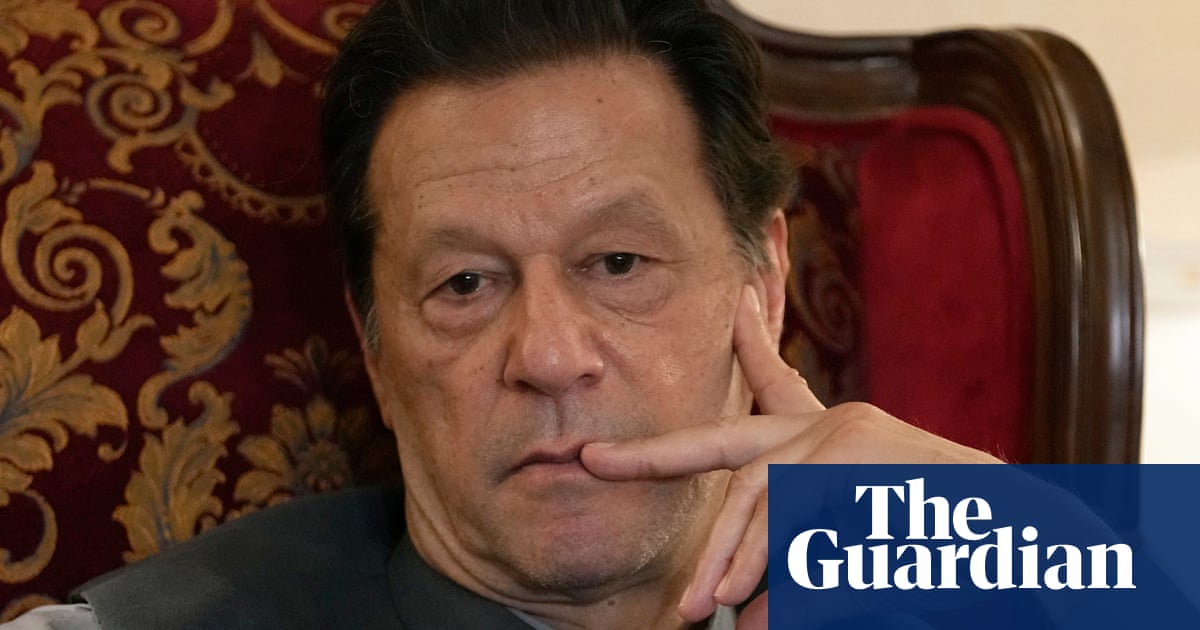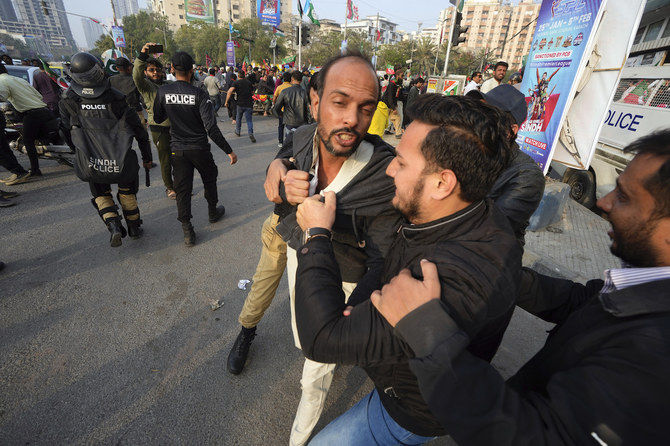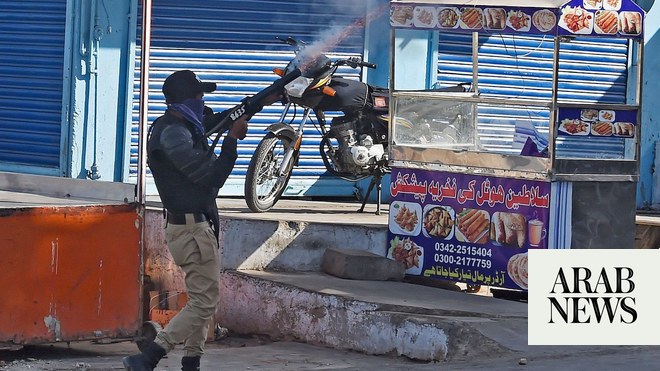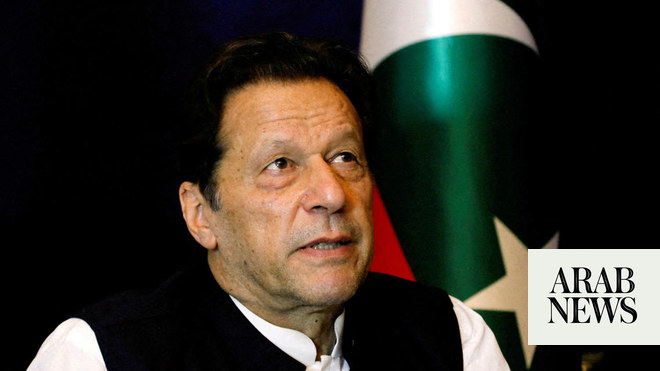
Pakistan’s former prime minister Imran Khan has been sentenced to 10 years in jail for leaking official secrets, amid a crackdown on his political party before the general election due next week.
The sentence is the harshest yet against Khan, who has been held in jail since August after he began to openly criticise the country’s military.
The case relates to a diplomatic cable that allegedly went missing while in his possession. Khan publicly cited the cable as proof that the US had been part of a conspiracy behind his fall from power in 2022 but he denied taking it from the ministry of foreign affairs.
The legal proceedings were highly unusual, held not in a courtroom but in the prison in Rawalpindi where Khan was being detained. They were conducted behind closed doors, which Khan’s lawyers protested was unconstitutional.
Khan described the trial as “a joke” and a sham, as both the prosecution and defence teams were government-appointed lawyers and Khan’s lawyers were not allowed to cross-examine witnesses. The court refused Khan’s request that senior army figures testify as witnesses.
Khan’s former adviser Syed Zulfiqar Bukhari said: “It was obvious that it was a predetermined decision and verdict, Imran Khan’s legal team was not even given a chance to speak. This was only done in such a rush to convict Imran Khan prior to the upcoming election. The hearings were not done lawfully and we will challenge it in the high court.”
Khan’s deputy, Shah Mahmood Qureshi, who pleaded not guilty in the same case, was sentenced to 10 years under the official secrets act. He had been due to run in the elections on 8 February but the sentence means he is disqualified from politics.
Their lawyers said they would appeal against the ruling.
The 10-year sentence handed to Khan on Tuesday is the latest blow to the former prime minister since he was toppled from power in April 2022 and began publicly blaming Pakistan’s army generals for orchestrating his downfall.
Although Khan was brought to power with the backing of the military, after he was removed from office he became one of their most outspoken critics, accusing the army establishment of having a grudge against him and ordering his imprisonment.
After one failed attempt to put him behind bars, Khan was arrested in August after he was sentenced to three years in jail in a separate corruption case. A judge later suspended the sentence but Khan was kept in jail after further charges were brought against him relating to the missing diplomatic cable.
Khan has denied any wrongdoing and alleged that the cases against him were brought to prevent him from running in the election, which will be held on 8 February after several delays.
The campaign has already been marred by accusations of pre-poll rigging and attempts to undermine and obstruct Khan’s Pakistan Tehreek-e-Insaf (PTI) party, which remains highly popular among voters. Khan’s convictions mean he is barred from running, while the PTI has has faced a months-long crackdown by the government and military that has prevented it from being able to freely campaign.
Thousands of rank-and-file party workers have been detained, harassed and prevented from holding rallies, while almost all senior leadership have been arrested or allegedly put under pressure to leave the party.
The election commission banned PTI from using its signature symbol of the cricket bat, which the party has alleged is a ploy to obstruct its campaigning, and blocked PTI candidates from running. Instructions have been issued to journalists and television news channels not to mention PTI as part of their election coverage.
Three members of the PTI were killed by a bomb in the Balochistan region on Tuesday after Khan’s sentencing, party officials said, as supporters on motorcycles were passing through a bazaar to attend a pre-election rally. No one claimed responsibility and police said they were investigating.
After Khan’s sentencing, the PTI secretary general, Omar Ayub Khan, told party workers to “remain calm and not indulge in any activity that undermines our traditional stance of a peaceful struggle”.
With Khan facing a decade behind bars and the systematic harassment and intimidation of PTI, critics and analysts say next week’s election is likely to be undemocratic and to lack legitimacy.
The frontrunner is widely accepted to be the three-time former prime minister Nawaz Sharif, who is said to have the military’s backing.
Shari’s last term in power ended in 2017 after he came to blows with the military leadership and was then jailed for corruption. Sharif fled to exile in London but was brought back last year, a move widely understood to have been orchestrated by the military.
The courts recently cleared Sharif of a lifetime ban from politics, paving the way for his return to power. The military has denied any involvement and said it remains apolitical.












